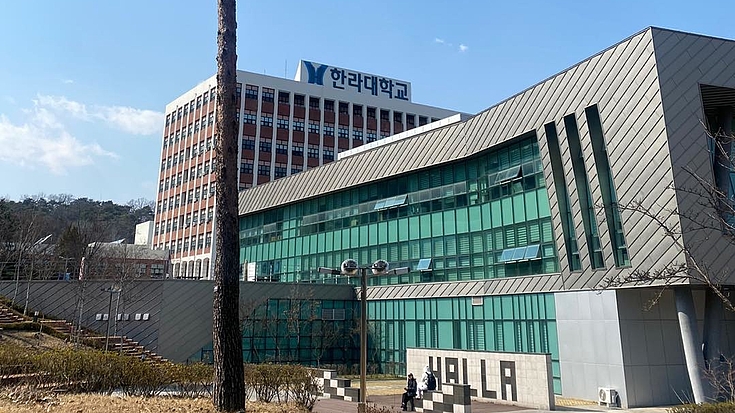Guest Lecture
German Unification And The Recent Changes In North Korea´s Unification Strategy

Dr. Bernhard Seliger, representative of HSF, was invited by Prof. Kwang-Ho Park to visit the Halla University Gangwon Unification Education Center in Wonju. Halla University has established itself as a leading center for unification studies in the divided Gangwon Province, separated by the inter-Korean border.
In his expert lecture, Dr. Seliger delved into the German reunification process, emphasizing the differences in economic development, and elucidating the challenges and measures taken to overcome the obstacles of reunification.

Dr. Seliger highlighted that while Germany and Korea share the historical context of national division, their situations are not entirely analogous. However, he emphasized the importance of preparing Korea for the potential consequences of reunification and how Germany's unification process can help.
To familiarize students with the topic, Dr. Seliger began the lecture with a historical introduction to the GDR and the effects of German reunification. He presented students with various images and sources to better illustrate the presented content. Dr. Seliger also mentioned the concept of the "Double Burden," describing the challenging work and household situation of women in both the former GDR and present-day DPRK, to raise awareness of the issue.

Following the lecture, Dr. Seliger answered questions from students at Halla University and concluded his speech with the important statement that despite the differences between the DPRK and the Republic of Korea, these disparities should not hinder the unity of the people.
